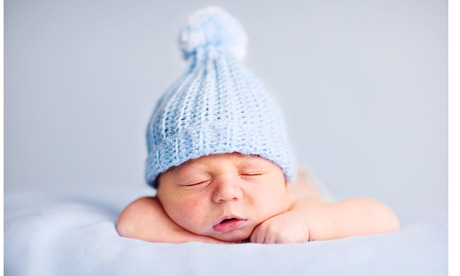
When the midwife places your newborn in your arms, you will feel a mixture of exhaustion and ecstasy. "This is the beginning of the rest of my life. Everything's going to be wonderful," you think. You may get the baby blues for a bit, but that's normal and will go away in time. This is the received wisdom trotted out to first-time mothers, but the reality can be somewhat different.
When I gave birth to my son, Robin, I was staggered at how isolated I felt. In the fog of the first few weeks I kept thinking how hard everything was – I was conscious of not being myself, although I'd give the impression that I was fine.
I remember filling out a peculiar form at my six-week check which had questions such as, "Have you ever felt like harming yourself or your baby?". I didn't, but who would want to tick "yes" and be branded an unfit mother? Who would want to admit to finding motherhood so difficult, to confess that this longed-for bundle of joy is so daunting?
Add to this the stigma that still exists around mental health generally and it's no wonder there's a feeling of panic. Post-natal illness affects between 70,000 and 100,000 women and their babies in the UK each year, and today it was reported that the NHS offers only patchy and often inadequate maternal mental healthcare. At least 20% of all new mothers are likely to suffer depression, and for between a third and a half of these it will be severe.
Occasionally there will be a high profile case where people can gasp at the horror of a woman who has killed her child, but there is less coverage for a mother who has taken her own life.
The media is full of opinions about motherhood, little jibes about "career bitches" or "yummy mummies". It is assumed a mother's day is filled by checking out the latest gossip on Mumsnet Towers and a spot of lunch. Little is written by women about their life in the first year after a baby is born. It is recorded retrospectively, if at all – mostly because it can get to 2pm before a new mother can find time to brush her teeth.
Of course, women have always had babies and nobody expects it to be a breeze. But in our increasingly fast-paced society you can leave hospital a few hours after giving birth and be expected to get on with it. Families these days tend to be small, women rarely live in their home town and often delay having children while they pursue careers, so to be suddenly thrust into the role of housebound new mother, without a support network, can be terrifying.
Mother and baby groups are usually informal drop-ins, not suitable for discussing difficult or painful issues. The last thing a vulnerable new mother needs is to walk into a large room of chattering women who all seem to know each other. And there are post-natal depression groups, but to many this is an uncomfortably public sign that they are not coping. These women are kept apart, in "closed groups". It's as if there's a fear they might infect the other mothers.
There is another way. Regular discussion groups, organised activities and more home visits could all help. Organisations such as Mothers Uncovered, which I run in Brighton, offer a series of structured meetings with the same group every week so mothers get to know each other and feel they can speak freely. Of course they talk about their babies – you wouldn't expect them to discuss the theory behind Schrödinger's cat on two hours' sleep – but they can also process what they are going through. Peer support helps women to feel that they are not mad or bad mothers, but are just going through an enormous life change. Mothers who feel supported relate better to their babies, which would benefit society in the long term.
Every mother I have spoken to in the past few years has said they couldn't find an adequate outlet for their feelings at the beginning. Were they all suffering from depression? On some days they wanted to share how much they loved being a mother, maybe over some tea and biscuits. Both the terminology and attitude to this period of motherhood are wrong. It needs to be recognised that the mental health of a mother following a birth is as important as her physical health beforehand.
Like so many women, I gradually realised that I was just an inadequately prepared normal mother. I had a relatively mild case of depression (I am guessing – I was never diagnosed), which lifted in time. Most women just "get on with it" and the memories of that turbulent time fade. This is why the problem continues. For the women whose lives are permanently blighted by their experiences of becoming a mother, the situation must change.

